Foreword
Foreword to the Special Issue on Classical Poetry from Taiwan
Kuo-ch’ing Tu
For each issue of this journal, from our maiden edition in 1996 to the most recently published Issue 46, we have set a theme. We have chosen to highlight important authors and writings with particular attributes that represent the most salient features of literary development in Taiwan. However, for many years we had felt a deep sense that something was amiss because we had not been able to dedicate a special issue to poetry. That situation was finally remedied with Issue 46 (November 2020), when, with Professor Horng Shu-ling acting as guest editor, we published our Special Issue on Contemporary Poetry from Taiwan.
Yet apart from “new poetry” composed in the vernacular language, the tradition of classical poetry originating in China has also been maintained in Taiwan. We cannot ignore the fact that those poets who continued to compose classical verse, as well as the activities of their poetry societies, are yet another aspect of the diversity of Chinese-language poetic development in Taiwan which at the same time has unique local characteristics. For this reason, it goes without saying that after publishing our special issue on contemporary poetry, the next logical step was to follow up with a special issue on classical poetry. To this end we invited Professor Huang Mei-e of the Graduate Institute of Taiwan Literature at National Taiwan University to assume the responsibility of guest editor for the present volume. As anyone familiar with her outstanding achievements in this field knows, and with the esteem in which her scholarship is held, Professor Huang was the obvious choice for this task.
Apart from a selection of representative verse, Professor Huang’s organization of the issue includes an introductory essay, entitled “Poems that Speak of Taiwan—Speaking of Taiwan Poetry” in which she gives a brief summary of the historical background and special character of the development of classical poetry in Taiwan. The first part of the essay, “Poems that Speak of Taiwan” highlights the manner in which the works chosen for this special issue reflect Taiwan. The second part, “Speaking of Taiwan Poetry,” elaborates on the recurring themes and content of classical Chinese verse in Taiwan. The two parts are complementary and mutually illustrative, forming a logical structure for the issue.
In another scholarly paper written by Professor Huang, “Practice and Transformation: The Experience of Modernity in Classical Poetry Societies in Taiwan During the Period of Japanese Rule,” we find an exploration of the role of traditional Chinese poetry in Taiwan during the period of Japanese rule. We observe the process by which classical poetry formed a bridge between earlier and later poetics as it confronted the rising tide of modern Western thought and made accommodations to the Japanese colonial regime, to transform itself and become part of the context which Chinese classicalpoetry developed in Taiwan became “modern.”
In order to help us understand the special qualities found in classical poetry in Taiwan, Professor Huang has selected a total of thirty-four verses by thirty-one authors. These she has organized into six sections to demonstrate the characteristics of classical poetry in Taiwan according to their subject matter. Regarding the subject matter, the poems display an inclusive breadth broadly reflective of society and life, and the modernity responsive to history and the times. Regarding the themes, they illuminate the local experiences and the spirit of the people, times, places, and objects of Taiwan.
The historical development of classical poetry in Taiwan can be divided into three stages. The origins of classical poetry in the seventeenth century during the Zheng Chenggong period constitute the first stage. With the assistance of his counselor Chen Yonghua (1634–1680), The King Zheng Jing of Dongning, had a Confucian temple built in which he established a school to promote Confucian learning. In this way he introduced Sinitic culture and laid a foundation for the introduction of Chinese literary tradition. During the Qing dynasty, numerous Chinese literati and government officials who sojourned in Taiwan continued this tradition, eventually interacting with local Taiwanese poets through the medium of poetry societies.
The second stage was the period of Japanese rule (1895–1945). Japanese traditional culture was always deeply influenced by Chinese culture, and during the Japanese colonial period many Japanese practitioners of classical Chinese poetry ( J. kanshi 漢詩 ) came to Taiwan. They formed poetry societies through which they pursued assimilationist policies as they interacted with Taiwanese poets. In this way, Taiwan’s classical poetry played an ambiguous and complex role in cultural governance which was at once cooperative, opposed, and competitive. On the other hand, as is noted in Professor Huang’s introduction, the most important feature of classical Chinese poetry during the Japanese period was its gradual popularization and concern with everyday life. During that time, at least 370 classical poetry societies appeared in Taiwan. This speaks of a movement towards broad popularity. All poets enjoy gathering to recite their verse and compose together. Classical poetry came to be used in everyday life, including weddings and funerals. In this way the unique situation in which “society became literary, and literature became socialized” took shape. Government, culture and literature were influenced on many levels, and it is clear that the whole question of the role of classical Chinese poetry during the Japanese colonial period requires further investigation.
The third stage is the era of Nationalist government. After World War II (beginning in 1945), Taiwan again experienced a complete change of regime. Whereas Japanese masters of Chinese classical poetry had previously interacted with Taiwanese poets through poetry societies, when the Nationalist government replaced the Japanese colonial administration, dominance in classical Chinese poetry circles was assumed by literati who migrated to Taiwan from China. This led to the growth of close relations between local poets and poets from the various provinces of China. However, after Yu Youren died in 1964, the world of classical poetry lost one of its towering figures. As a consequence, the social position of traditional poetry declined and classical poetic forms were gradually supplanted by “new poetry” written in the vernacular. And yet, even to the present day there are still a few poetry societies that strive to preserve the tradition. For example, the Ocean Poetry Society in Taipei, with its more than 100-year history, is still attracting new members and has set up a website.
This and other groups are doing their utmost to promote the composition of classical verse so that the flame of this venerable tradition may be passed on to future generations. According to her careful plan, Professor Huang divided the poems translated for this special edition into six thematic sections:
1) Taiwan and Taiwanese in the Interstices of History (6 poems)
2) Crossing the Ocean to Taiwan, Putting Down Roots that Grow Along with Chinese Culture (5 poems)
3) Poems on the Aesthetics of Natural Landscape Scenery (6 poems)
4) Climate, Natural Resources, and Food (6 poems)
5) Folk Customs, Festivals, and Sacrificial Ceremony (4 poems)
6) Poems Expressing Emotions, Sentiments and Criticisms (7 poems)
The majority of these pieces has been selected from Three Hundred Classical Chinese Poems from Taiwan, (2 vols.), edited by Yu Meiling and Shi Yiling (National Museum of Taiwan Literature, 2019). This anthology includes notes, explanations, and appreciations which make it easier for contemporary readers to comprehend the verse. For the several pieces selected by Professor Huang herself, Yu Yuting, Associate Professor in the Chinese Department of Fu-Jen University, was invited to provide vernacular translations for the reference of the translators. In the process of reviewing the manuscript translations, Professor Terence Russell, co-editor of the journal, has added many additional annotations to aid English language readers in understanding the poems. The majority of classical Chinese poems from Taiwan are written in the form of seven-character regulated verse and seven-character quatrains, with very few five-character quatrains. The lines of classical Chinese verse are very short, the meaning of the poems very concise. For that reason, we have added the Chinese texts after the English renderings. We hope that in this way the reader will be able to gain a better appreciation of the tone and flavor of the original poem.
In the poetry selected for this issue we see the rich, expansive content of classical Chinese verse from Taiwan. That verse manifests the responses of Taiwanese poets to their times, to nature, to places and to people. It also reflects the many faces of Taiwan’s specific temporal and geographical background through depictions of local experiences and the local spirit. Professor Huang’s introduction provides a more detailed discussion of these issues, so there is no need for us to belabor the matter here.
In addition, regarding critical studies, Professor Huang’s research paper is a highly erudite study, rich in contents and extensive with references, also referring to specialized research materials, which for the readers who may not have an extensive background in the subject may encounter difficulty in digesting the issues elaborated. As suggested in the title of her treatise, Professor Huang provides highly insightful analysis. However, due to the limitations of space we can offer only a translation of the introduction and conclusion of the paper, thereby giving no more than the main points of the discussion. For this we beg the author’s understanding. We would also like to take the opportunity here to thank the translator of the text, Professor Richard Rong-bin Chen who teaches in the Master’s degree program in translation at National Taiwan University.
It was our original intention to have this issue of the journal published at the beginning of 2021. However, as we made our preparations, the Wuhan Coronavirus pandemic grew increasingly severe. With people staying at home under lockdown orders it was impossible to move our editing work along smoothly. The end result is that we have had to delay publication; for that we can only beg the understanding of our readers. Now that we can finally publish this issue, I want, first and foremost, to express my gratitude to Professor Huang Mei-e for her work in planning the issue and for her cooperation. She chose the works for translation and also composed an introduction explaining the development of classical Chinese poetry in Taiwan as well as its special local characteristics and digital databases. She also has given us a summary of the basic purport of the poems and their salient features. For the translations we must thank Professor Li Xiaorong of the University of California, Santa Barbara’s East Asian Languages and Cultural Studies Department for recommending two graduate students to lend us their assistance. These students, Sophia Shi and Yang Zhao, are both specializing in the study of classical Chinese poetry. My co-editor for the journal, Terence Russell, was willing to take up the slack where necessary and translated several of the poems as well as the taking responsibility for translating the introduction. Without his total commitment and painstaking editorial work we would never have been able to bring the translation work for this issue to completion.
In the process of editing this issue we are also very grateful to undergraduate student Zachary Belgum for his assistance with proof reading the manuscript. We want to give special thanks to our assistant Raelynn Moy, who has recently decided to retire. Since the inception of the journal Raelynn has always been there to help with editorial and administrative work, including taking care of paperwork, checking the translated texts, formatting the manuscript, maintaining the web page and communicating with authors, translators and subscribers. She has dealt with matters great and small, always tireless and unstinting. There is no way to overestimate her contributions and we will forever be in her debt. Thank you, Raelynn!
We also want to thank Fred Edwards for his assistance and cooperation over the years as editor and proof reader of the English language translations. Fred provides many valuable suggestions which greatly contribute to the readability of our English texts. We are grateful for the work of Yen Chia-yun, special editor at National Taiwan University Press. Her beautiful cover design and high production standards add tremendously to the appearance of this issue. Finally, I cannot neglect to offer a special thanks to Terence Russell who is responsible for editing the journal’s English language texts. He is a comrade-in-arms working together with me in perfect accord. With this issue in particular he has contributed his profound scholarship, wisdom and illumination to every aspect of the production process from top to bottom. He is modest and genuine, and I hope that the reader will take time to appreciate his efforts.



 天天爆殺
天天爆殺  今日66折
今日66折 
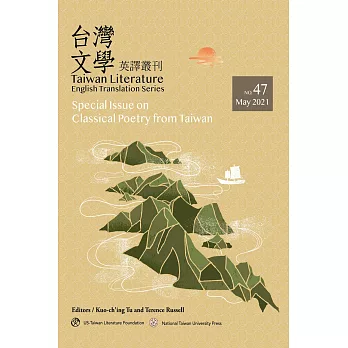

















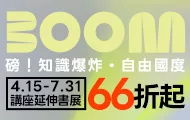
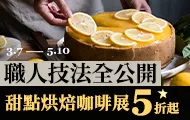
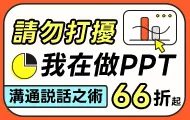
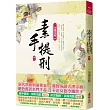
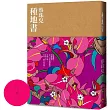
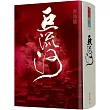
 博客來
博客來 博客來
博客來 博客來
博客來 博客來
博客來 博客來
博客來